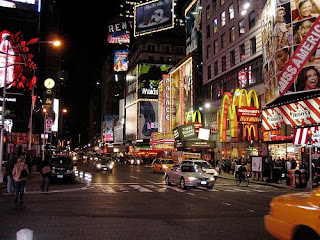
Recently I finished up working on all of the "adding" homework that was assigned.
The adding navigation, animation, sound, and interaction.
I will admit that it was harder than I expected it, and I think that it was mostly because of directions. Once I figured out what needed to be done, it did not take me very long to figure out how to do it, and then execute the task at hand.
Adding NavigationThis was the first of the "adding" home working assignments that I started, and it had me stumped.
When I began to work on the assignment, I had already had the concept and new how to create an interactive button, but when I started watching the the videos that were on the page I just became confused. In my opinion, the videos were fairly informative, but the instructions that followed did not help me realize what I was supposed to do for the assignment. It turned out to be fairly simple, to just make two of the buttons in the file work to go to a different screen, but lack of instructions made me try numerous other things first.
Adding AnimationAdding animation was pretty easy for me. I had already worked with Monica on an animation of a cow that goes by the screen, so I just uploaded that since I knew the process by which to do that.
Adding SoundThis one was pretty fun. I added a mooing sound to the cow from adding animation. It made it quite comical. The only problem I had with this video, is that the method by which they told you to import the file didn't work, so I had to google how to correctly get my "mooing" sound into the layer I wanted it in.
Adding Interaction
The Final project I worked on for the assignments wasn't too difficult, but kind of confusing.
This assignment was similar to the "Mini-Game" project we had already worked on. It was taking an object and making it be able to move with the arrow keys. The problem I had with it was that the tutorial they posted a link for wasn't very accurate to our version. The steps it says to do don't line up with our version of Flash, so I had to take time to figure out what options worked and what didn't. It allowed me to figure things out for myself, which I did enjoy.
Overall, I think that the "adding" assignments were beneficial in the fact that it allowed me to process things and figure them out for myself. It allowed me to learn more about the interface of Flash.




















